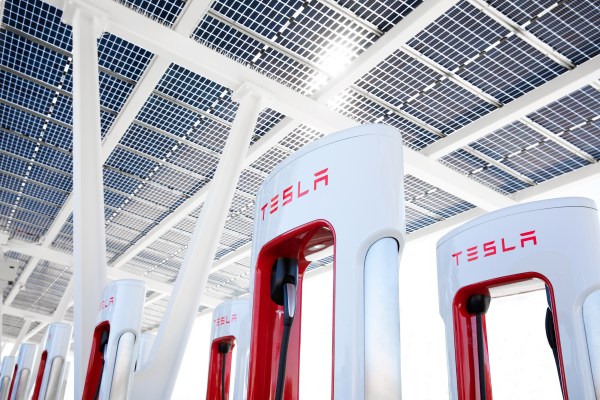Tesla will secure nickel from the commodity production giant BHP, the automaker’s latest move to secure direct sources of raw materials that are projected to surge in demand before the decade is out.
BHP’s Nickel West division will supply an undisclosed amount of the mineral from its mines in Western Australia. The two companies also agreed to work together to increase battery supply chain sustainability and to identify ways to decrease carbon emissions from their respective operations using energy storage paired with renewable energy.
Nickel is a key mineral in lithium-ion batteries, and a cornerstone of Tesla’s next-gen battery chemistry. While many lithium-ion batteries have cathodes made from nickel, manganese and cobalt, Tesla is taking a different tack. At Tesla’s Battery Day 2020, Musk said the automaker would invest in a nickel-rich, cobalt-free cathode for some models, citing greater energy density.
Tesla also hasn’t been shy about its own intention to increase battery cell production in the coming decade, aiming to produce 100 gigawatt hours of batteries by 2022, to a staggering 3 terawatt hours per year by 2030.
To that end, the company is moving fast to secure purchase agreements with leading nickel producers. Earlier this year, the automaker announced a partnership with a nickel producer in the French Pacific territory New Caledonia. Just a few months later, Tesla chairperson Robyn Denhlm confirmed that the company was looking to purchase around $1 billion per year in battery minerals from Australia alone.
Musk has repeatedly urged miners to produce more nickel. On an investment call last July, he told producers, “Tesla will give you a giant contract for a long period of time if you mine nickel efficiently and in an environmentally sensitive way.” At Battery Day, he reiterated his position: “In order to scale, we really need to make sure that we’re not constrained by total nickel availability,” he said. “I actually spoke with the CEOs of the biggest mining company in the world and said, ‘Please make more nickel, it’s very important.’”
But finding an environmentally friendly nickel source is a challenge. Some of that has to do with issues endemic to present-day recovery and smelting techniques; others are more directly manageable by mining companies. For example, nickel mining operations in Indonesia, the world’s largest producer of the metal, have come under fire for their reliance on coal and their waste disposal techniques.
BHP claims its operation is one of the most sustainable in the world, and Tesla’s decision to partner with it could be seen as something of a confirmation of that fact. The commodity producer in February said up to 50% of the electricity to power one of its nickel refineries would come from solar energy resources.
The vast majority of the world’s nickel supply is currently consumed by the steel industry. While nickel demand in the EV and energy storage sectors is currently relatively small, the International Energy Agency estimates that will increase more than 4,000% over the next 20 years — from 81 metric tons in 2020 to 3,352 metric tons by 2040.
Nickel West has historically been a tiny fraction of BHP’s overall business, dwarfed by its iron ore, copper and petroleum businesses. The commodity producer tried to sell Nickel West a number of times since around 2015, but it appears to have changed its tune with the forecasted groundswell of demand from the EV and energy storage sectors.
Industry analysts Benchmark Minerals estimated the deal with Tesla could be worth up to 18,000 tons of nickel annually.
